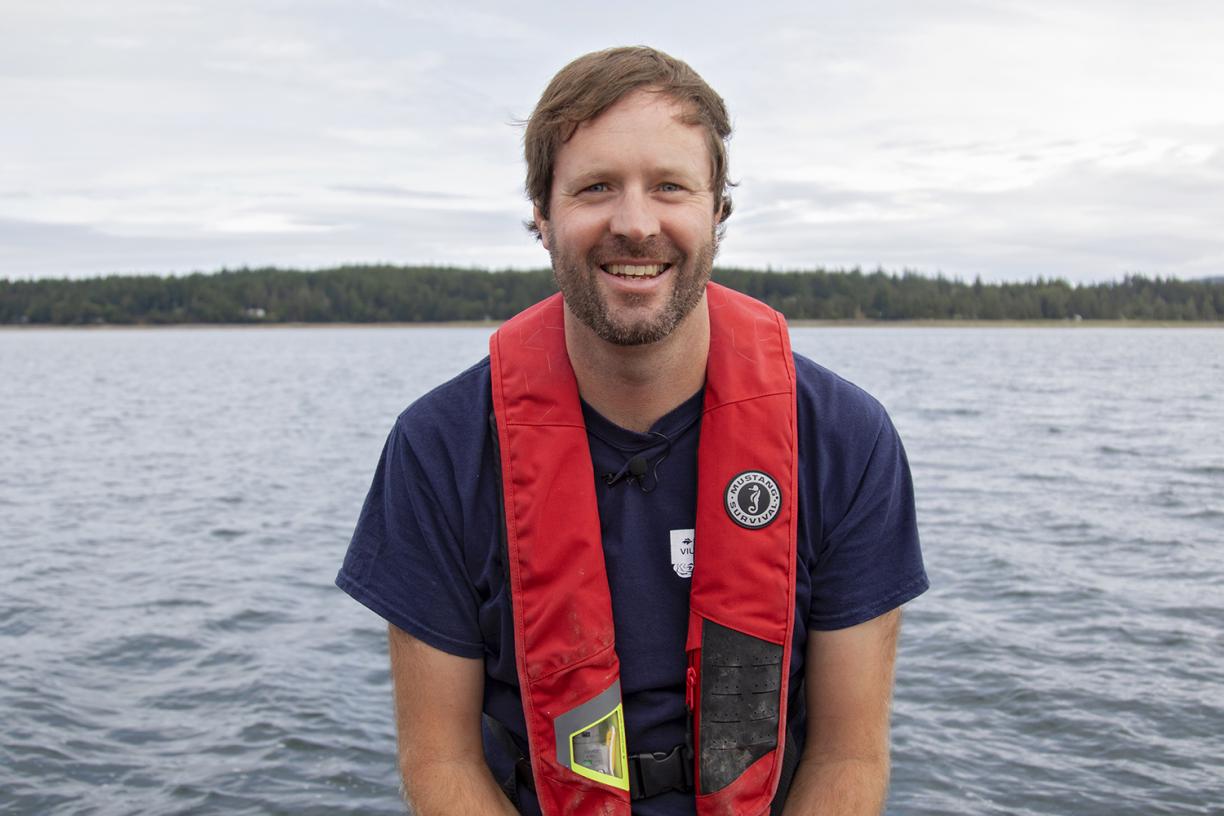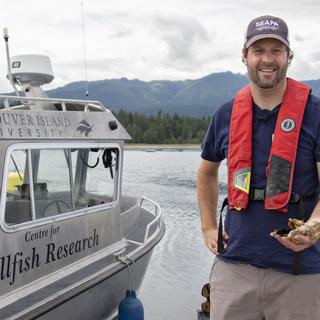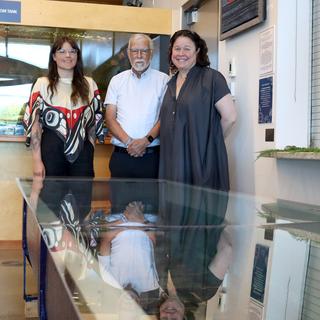Research project focuses on helping the BC shellfish industry to forecast, manage and prevent risks to human health and multi-million-dollar losses associated with outbreaks.
Dr. Tim Green, Vancouver Island University’s (VIU’s) Canada Research Chair in Shellfish Health and Genomics, is developing new tools to help forecast and prevent norovirus contamination of farmed oysters thanks to $300,000 in funding from Genome British Columbia and the BC Ministry of Agriculture.
Norovirus is highly contagious and causes gastroenteritis. It is not a natural marine virus and can be introduced into the environment through things like human sewage, either because of wastewater treatment plants, malfunctioning septic tanks and sewers, or recreational and commercial vessels.
Green says there have been norovirus outbreaks in the past and his research will help industry partners make faster, more informed decisions about whether it is safe to harvest their product.
“It will really help our industry partners get data to understand how norovirus enters the marine environment and contaminates oysters. We don’t know if it can be washed on ocean currents long distances or if it is fairly localized,” says Green. “If we identify problematic areas we can notify local governments to rectify sewage leaks better, understand if it is a leak and what areas need to be closed to ensure people don’t get sick.”
Green will conduct his research out of VIU’s Deep Bay Marine Field Station, focusing on Baynes Sound, which is the leading oyster producing region in BC. It involves using submersible fluorometers, a device that measures the fluorescence or light emitted by material, to detect the presence of contaminants such as laundry detergent in the water, which would indicate that wastewater has entered the marine environment.
This could be used as an early warning system, which would enable the BC shellfish industry to make faster, more informed decisions on whether to safely harvest their shellfish. Green is also examining how long it takes for norovirus to be eliminated from oysters under different environmental conditions.
The current practice for preventing norovirus outbreaks includes closing farms to oyster harvesting if people get sick from eating contaminated oysters. This prevents others from getting sick, but does little for people who are already sick, says Green. He hopes the development of an early warning system will stop contaminated oysters from reaching the market in the first place.
Green’s research is one of three projects jointly funded by the organizations to help identify strains of oyster-related illnesses. He is receiving $150,000 through Genome BC’s Sector Innovation and GeneSolve programs and $150,000 from the BC Ministry of Agriculture’s BC Oyster Recovery Fund. He is also working on the project with the BC Shellfish Growers Association, which is adding an additional $12,000 in funding and in-kind support.
“Dr. Green’s work at Deep Bay will address a critical gap in knowledge needed to effectively manage our shellfish resources while protecting public health,” says Dr. Nicole Vaugeois, Associate Vice-President, Scholarship, Research and Creative Activity at VIU.
The research projects aim to positively change how shellfish-related illness outbreaks and food safety investigations are handled in Canada.
“This investment is an important step forward in ensuring the BC oysters are safe for human consumption and that oyster farming in BC is better protected,” says Dr. Pascal Spothelfer, President and CEO of Genome BC in a media release. “BC’s seafood industry and government agencies are direct partners on this project so implementation will be swift and significant.”
-30-
MEDIA CONTACT:
Rachel Stern, Communications Officer, Vancouver Island University
P: 250.740.6560 l C: 250.618.0373 l E: Rachel.Stern@viu.ca | T: @VIUNews





